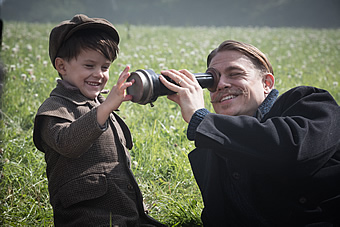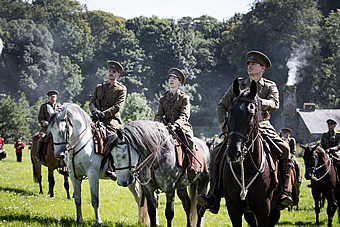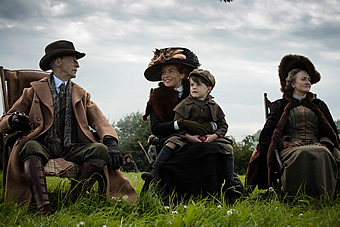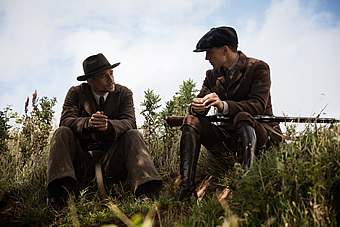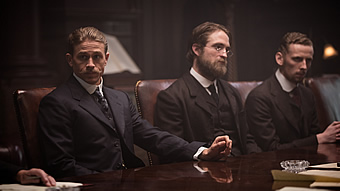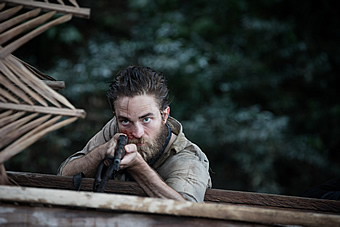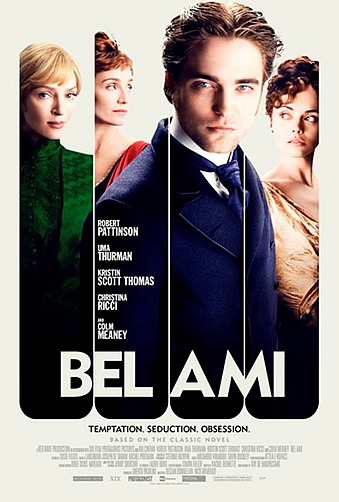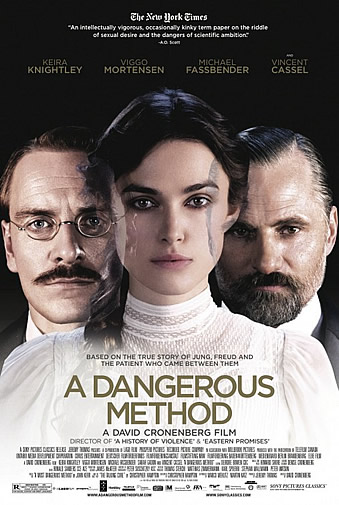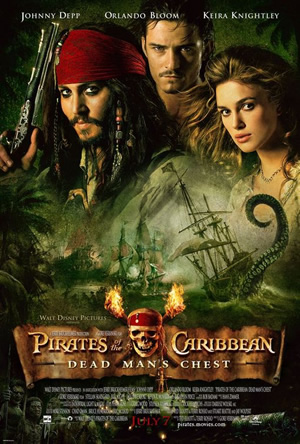THE LOST CITY OF Z (2017)
Genre: Action/Adventure
Director: James Gray
Cast: Tom Holland, Charlie Hunnam, Sienna Miller, Robert Pattinson, Harry Melling, Franco Nero, Ian McDiarmid
Runtime: 2 hrs 20 mins
Rating: PG13 (Some Nudity and Violence)
Released By: Cathay-Keris Films
Official Website:
Opening Day: 20 April 2017
Synopsis: Based on author David Grann's nonfiction bestseller, The Lost City of Z tells the incredible true story of British explorer Percy Fawcett (Charlie Hunnam), who journeys into the Amazon at the dawn of the 20th century and discovers evidence of a previously unknown, advanced civilization that may have once inhabited the region. Despite being ridiculed by the scientific establishment who regard indigenous populations as "savages," the determined Fawcett - supported by his devoted wife (Sienna Miller), son (Tom Holland) and aide-de-camp (Robert Pattinson) - returns time and again to his beloved jungle in an attempt to prove his case, culminating in his mysterious disappearance in 1925. An epically scaled tale of courage and passion, told in writer/director James Gray's classic filmmaking style, The Lost City of Z is a stirring tribute to the exploratory spirit and a conflicted adventurer driven to the verge of obsession.
Movie Review:
At some point or other, we’ve all experienced what it means to be consumed with passion over something that’s piqued our interest, stimulated our curiosity and preoccupied our minds.
For Colonel Percival Fawcett, that passion became a lifelong obsession over a lost city that lies somewhere in the deep of the Amazonians. It was an obsession that started in the year 1906 when he was posted to the Royal Geographic Society and sent into the jungles between Bolivia and Brazil to act as an independent referee over their border quarrel, a matter that had implications on the price of rubber and therefore of interest to the politically inclined Society. It was an obsession that would stay with him until his last expedition in 1925, where he was joined by his 21-year-old eldest child Jack, both of whom would not be heard from again nor found despite the efforts of hundreds of explorers that had subsequently entered the Amazon to retrace their steps.
Writer-director James Gray’s sumptuously old-fashioned epic ‘The Lost City of Z’ is precisely about Colonel Fawcett’s (Charlie Hunnam) consummate belief over the eponymous civilisation.
Beginning with his background as a hardy British Army officer who was frustrated by his ostracism from the upper echelons of military society due to ancestry (re: his father was a drunk and a gambler), Gray traces how a man would leave both wife and son behind, venture into hitherto uncharted realms, and spend the rest of the good years of his life trying to convince the Society that the glyphic markings and pieces of broken pottery he discovered on his maiden voyage into the South American jungle were in fact evidence of an ancient city of gold and maize he named ‘Zed’.
Along the way, Fawcett would find reliable companionship in one Henry Costin (Robert Pattinson) as much as he would end up being inevitably estranged from family given the time he spends away from them.
Adapting David Grann’s 2009 non-fiction bestseller of Fawcett and his expeditions is no small feat, especially given how the narrative sprawls over two decades. That Gray manages to accomplish that while squeezing in key episodes in Fawcett’s life (two in particular stand out – one involving a pompous senior Society member James Murray (Angus Macfadyen) who joins him on one of his voyages in 1912 and ends up jeopardising the entire crew and mission; and another at the Battle of the Somme during World War I where he would suffer temporary loss of sight after exposure to chlorine gas) and keeping clear focus on the costs and consequences of Percival’s singular obsession is nothing short of astounding.
Running at 2 hours and 20 minutes, it is long no doubt, and some stretches will feel – for the lack of a better word – a stretch, but those willing to take the patience will find themselves rewarded with an intimately engrossing study of a man consumed by the desire to explore and seized by an almost ritualistic form of natal homing.
Though somewhat underwhelming as the leads in ‘’Crimson Peak’ and ‘Pacific Rim’, ‘Sons of Anarchy’ alum Charlie Hunnam is magnificent as Fawcett. Unlike his aforementioned blockbusters, this movie isn’t built on visual spectacle – notwithstanding the encounters with native tribes friendly and hostile – but one which draws from its key protagonist’s emotional core. As Fawcett, Hunnam embodies his character’s ambition, purpose and motivation with poise, and it is as accomplished a performance that is grounded, persuasive and compelling.
It may not be immediately obvious, but Hunnam’s complement is not Pattinson but Sienna Miller, portraying his sharp-minded wife Nina who supports his outsized dreams but nonetheless has to manage the teenage resentment of their son. Miller may appear in at most a third of the film, but her luminous and astute presence is keenly felt throughout as the keeper of their family who wants to savour the same elation of discovery as her husband but knows and accepts her destiny as the one to be left at home. It is a testament to Miller’s outstanding work that Gray chooses to begin the film with her husband but end on her character, who delivers an epilogue by quoting from Rudyard Kipling’s ‘The Explorer’ and Robert Browning’s ‘Andrea del Santo’ before the poetic final shot.
Yes, whereas Grann adopts a journalistic perspective and fills in the missing pieces of his subject’s life with his own investigation, Gray opts instead to embrace Fawcett’s mysticism of the South American forests.
Was his quest driven by an innate need for spiritual fulfilment? Gray suggests that, and indeed accords him such a befitting farewell. Was his quest motivated too by his disillusionment with the life he would otherwise have inhabited? Gray suggests that as well, as Fawcett looks not at a picture of his family but a drawing of the Amazon just before charging into war at the Somme. Was that quest ultimately futile? Gray rejects that, and in fact honours Fawcett as a person who chose to follow his dreams with conviction and having lived his life fully.
Though his earlier crime dramas and tales of Eastern European immigrants in New York City may not have suggested a fit for Fawcett’s story, Gray brings the same his classical filmmaking style on this historical epic, and like his 2013 ‘The Immigrant’ or 2008’s ‘Two Lovers’, ‘The Lost City of Z’ is both intimate and expansive, imaginative and precise, patient and elegant.
Such old-fashioned adventure epics are themselves a lost genre these days, but Gray resurrects their grand sweep and dreamy energy in his modern-day classic. In Fawcett’s quixotic quest, Gray ponders no less on the meaning of life itself – that of life as a mystery, of how a man’s grasp should always exceed his reach, and how meaning in one’s finite existence is perhaps derived from how much understanding that journey has brought to one’s heart – and let’s just say this is one voyage into the unknown that is, however paradoxically, not lost or aimless but transporting and profound.
Movie Rating:




(Bringing his classicial filmmaking style to bear on an old-fashioned adventure epic, writer-director James Gray weaves an intimate yet expansive symphony around an explorer driven by ambition, purpose and utter conviction)
Review by Gabriel Chong
You might also like:
.jpg)
Movie Stills
